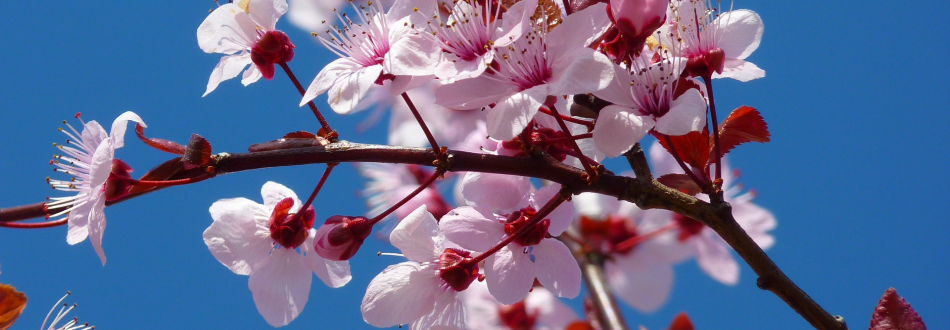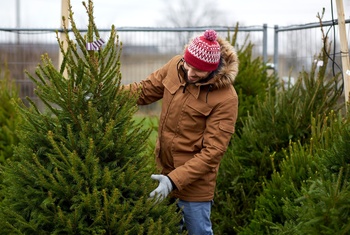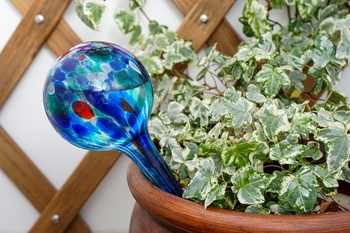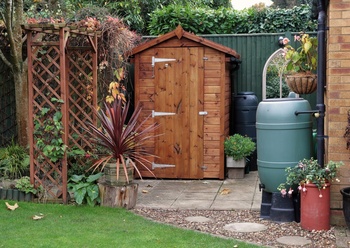
Harvest winter squash to store for winter, filling your shelves with rich, flavour-packed fruits to turn into hearty casseroles, soups, roasts and bakes right through the coldest months of the year.
By now as the weather turns chillier, the leaves on squash plants are often starting to die down, leaving the ripening fruit exposed to the late autumn sunshine. Remove any leaves which are shading your fruits so as much warmth and sunlight as possible can get to the skin, then lift each fruit up on bricks so the air can circulate underneath. Turn them gently, still on the plant, every few days so the skins are evenly ‘cured’, ripening and hardening to keep the orange flesh beneath in good condition for as long as possible.
Your fruit is ready to harvest once it sounds hollow when you tap it lightly. At this point you can cut it away from the plant cleanly with a pair of sharp secateurs, along with a length of stalk – around 10-15cm is ideal – to form a watertight seal and prevent the neck rotting.
Next, bring your squash indoors somewhere bright, warm and dry to finish curing. The greenhouse or a sunny conservatory is ideal, though a sunny windowsill often serves well. Then move the fruits to their final storage place: this should be an unheated but frost-free room, ideally well-ventilated: the temperature should be about 10-15°C. A spare room in the house is often about right.
Check the fruit regularly for any signs of rot, removing any which are affected to eat straight away. Your squash will keep for several months, depending on the variety: expect butternut and acorn squashes to last 2-3 months, but larger winter squashes such as ‘Blue Hubbard’ and ‘Crown Prince’ can stay as good as the day you cut them right through till spring.







